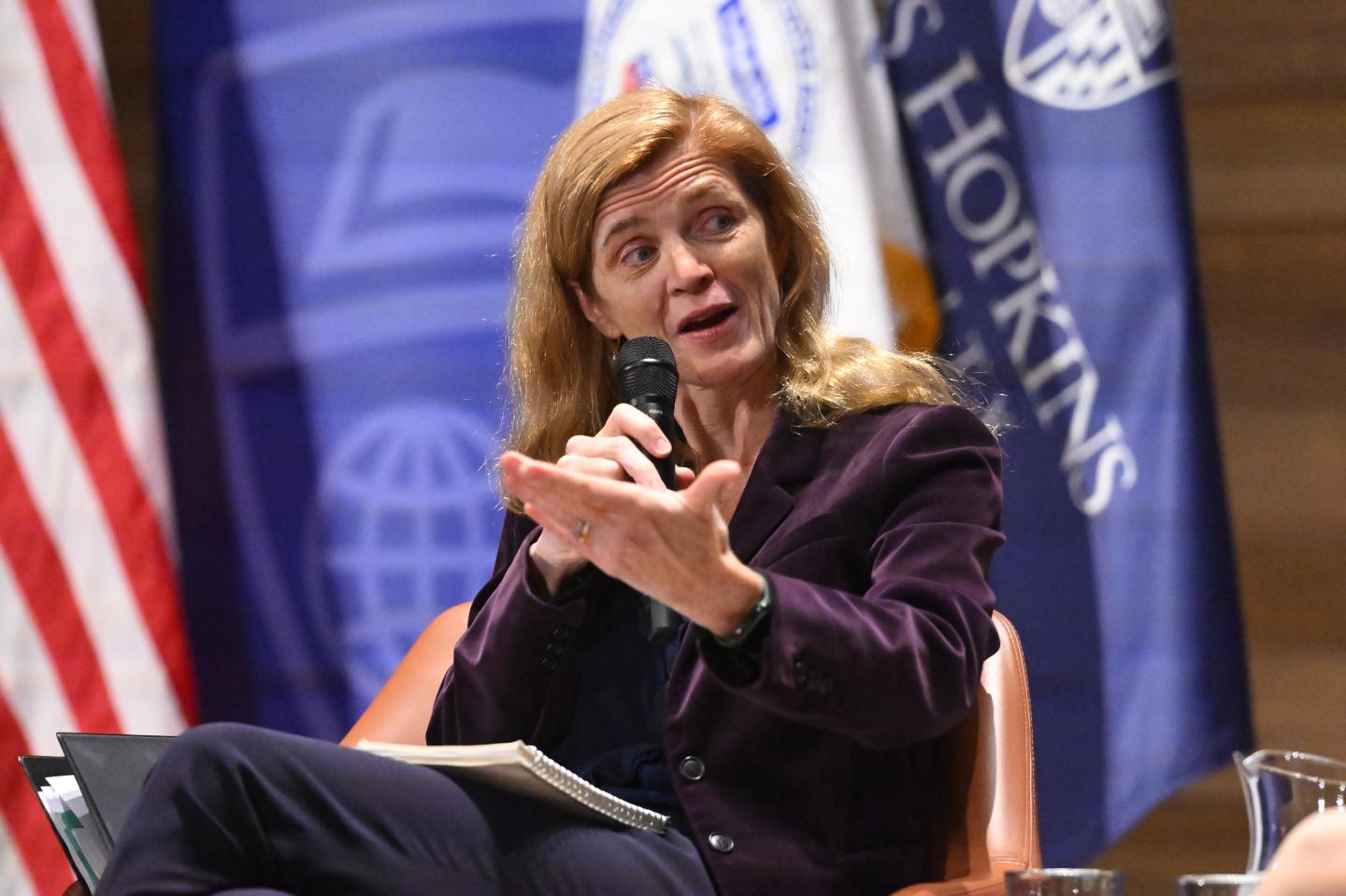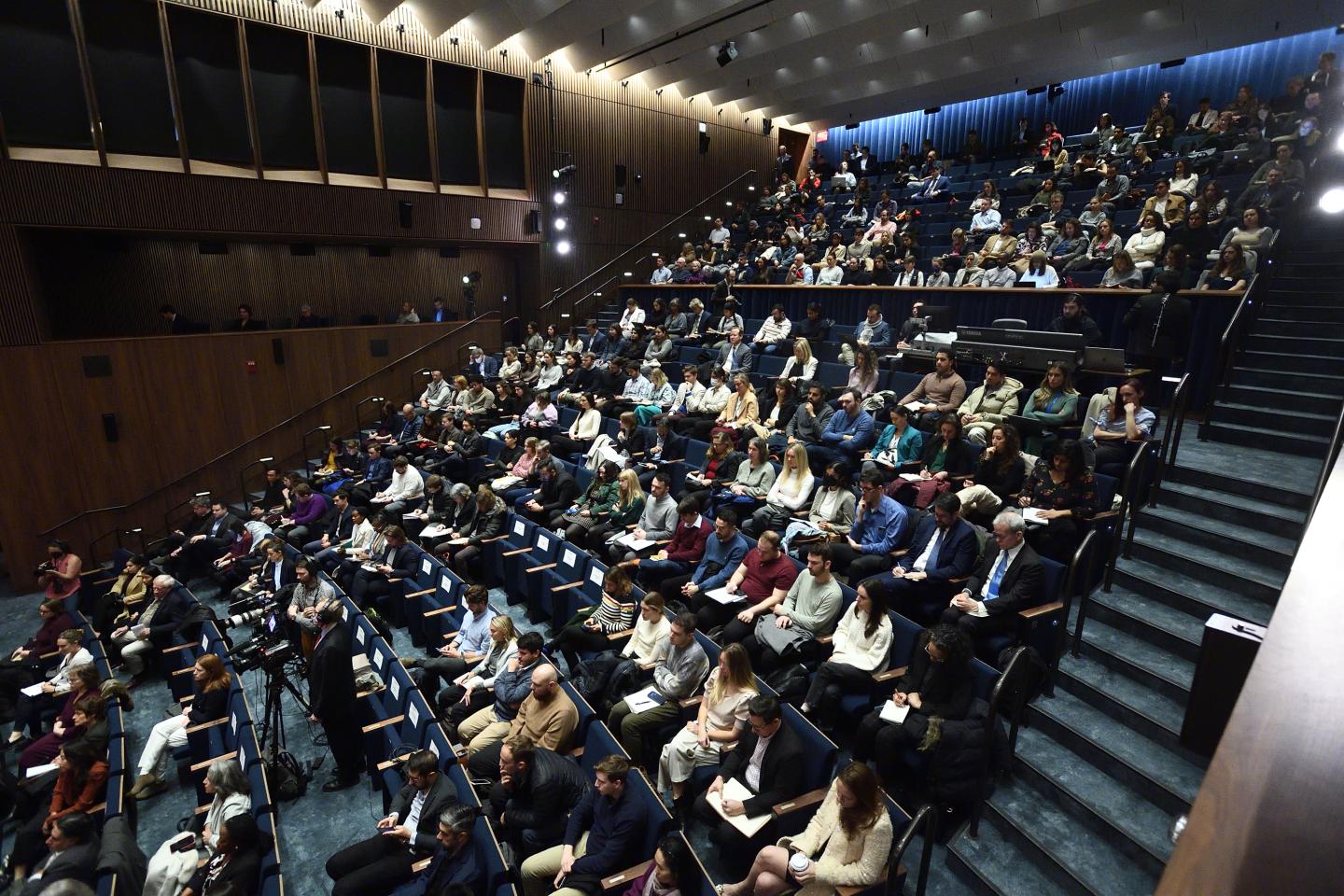Climate disasters occur so frequently that they no longer shock us. Yet the world is doing far too little to combat climate change and prepare countries for the disasters that will inevitably befall them, Samantha Power, said Tuesday morning during an address at the Johns Hopkins University Bloomberg Center in Washington, D.C.
Video credit: Aubrey Morse, Roy Henry, and Patrick Ridgely / Johns Hopkins University
"Many have become numb to the images of orange skies choked with wildfire smoke, cities turned into rivers, [and] roads and doorknobs literally melting in the scorching heat," said Power, the 19th administrator of the United States Agency of International Development, or USAID, an independent agency of the U.S. government that leads the country's development and humanitarian efforts in more than 100 nations worldwide. "Despite the fact that we know these disasters will continue, despite the fact that we all expect them to get much worse, the world is still not investing in preparing our communities for these disasters at anywhere near the scale that we need."
In this sense, we are all vulnerable—and must act quickly to deter the catastrophes that "have lost the power to shock our psyches [but] are, in fact, massively shocking our systems [and] destroying crops and infrastructure and livelihoods," Power said, adding later that "climate shocks have thrown millions into hunger and reversed progress in combating diseases—from malaria to dengue fever to cholera in Africa."
The solution, she told the crowd of in-person and online listeners, is twofold: First, we must accelerate our efforts to reduce fossil fuel emissions and transition to renewable energies; second, we must equip countries and communities with the tools and resources they need to become climate resilient and avoid the devastating consequences of rising temperatures.
Technological innovations are key to meeting these objectives, and private companies and investors must step up and play a bigger role in devising affordable, scalable solutions, said Power, who also served as U.S. ambassador to the United Nations from 2013 to 2017. The problem, however, is that investing in climate resilience has long been considered risky. "Today, just 2% of … private finance in the climate domain is going to investments in climate resilience," a number that barely puts a dent in the estimated $215 billion a year needed by developing nations to adapt to climate change, Power explained.
Yet new research indicates that not investing in climate resiliency poses an even greater risk to private companies, which stand to profit from the endeavor. At last month's annual meeting of the World Economic Forum, Power said, CEOs identified extreme weather as the number-one risk to their businesses. "They found that companies have a great deal to gain by recognizing this risk as real before it is actually realized," she explained, adding: "For every dollar the companies invest in resilient operations and supply chains, they are saving a median of $5 in avoided revenue losses and costs."

Image credit: Will Kirk / Johns Hopkins University
The tall task load and financing required to help countries withstand climate change can feel overwhelming, Power said, but it's not impossible if private investors partner with governments, universities, and communities worldwide to make it happen. Speaking on behalf of USAID, Power invited "interested companies and investors to engage with us and with our missions around the world to see how we can work together." She urged foundations, financial institutions, and donor governments to invest, too—and for "young people like the students here today to be part of the solution."
"There's old wisdom out there that the hardest part of innovation is identifying the right problems to solve in the first place," Power said to the many students in attendance. "[But] you are not going to have trouble identifying problems to try to solve, and especially with the training you are getting here, you just might find an important answer."
For much of the audience, made up not just of students but also faculty, alumni, and members of the public, Power's talk served as motivation to continue working on climate solutions as well as a critical reminder of the human side of climate change—and how it affects communities at a granular level.
"We've seen tremendous growth in renewable energy, but [as Power pointed out,] the human dimension and community level [have often been overlooked]," said Benjamin Link, managing director of the Ralph O'Connor Sustainable Energy Institute at Johns Hopkins, which integrates efforts across the university to create and implement clean, renewable, and sustainable energy technologies.
"In the U.S., our carbon emissions peaked in 2005, and we're on a downward trajectory, but that's not true of many industrialized countries," Link continued. Nevertheless, "we need to be part of the solution because, really, we're all in this together. We have one atmosphere that we share … and we need to think of this as a common goods and a collective effort."

Image credit: Will Kirk / Johns Hopkins University






